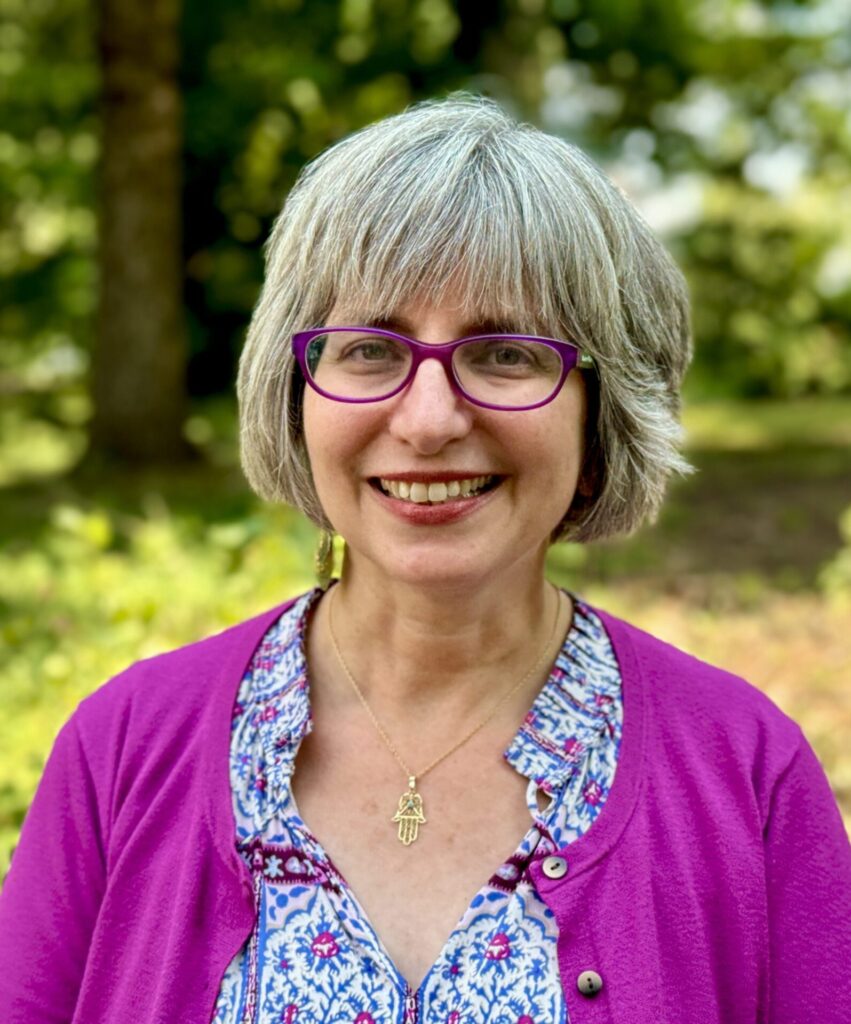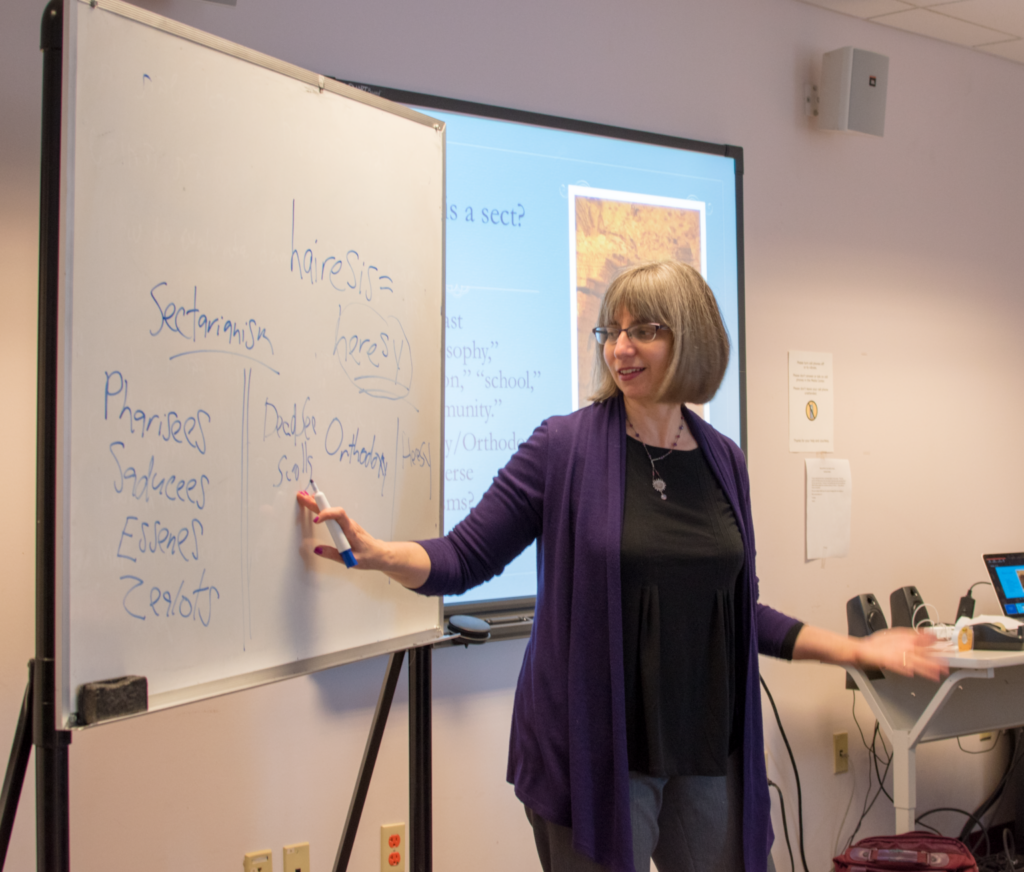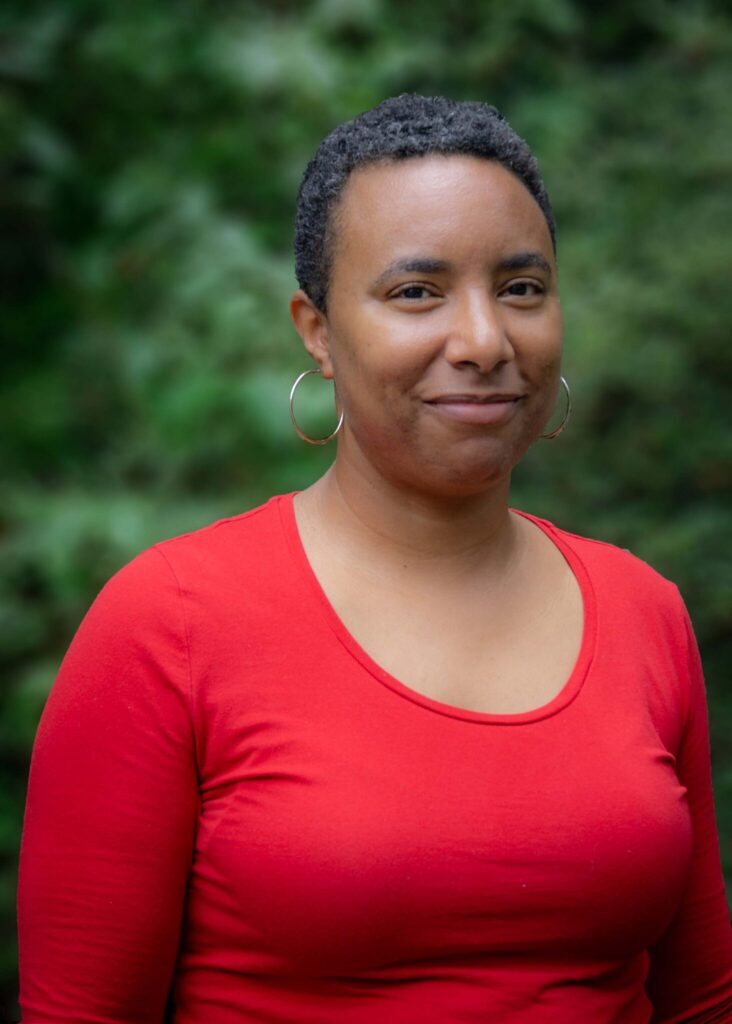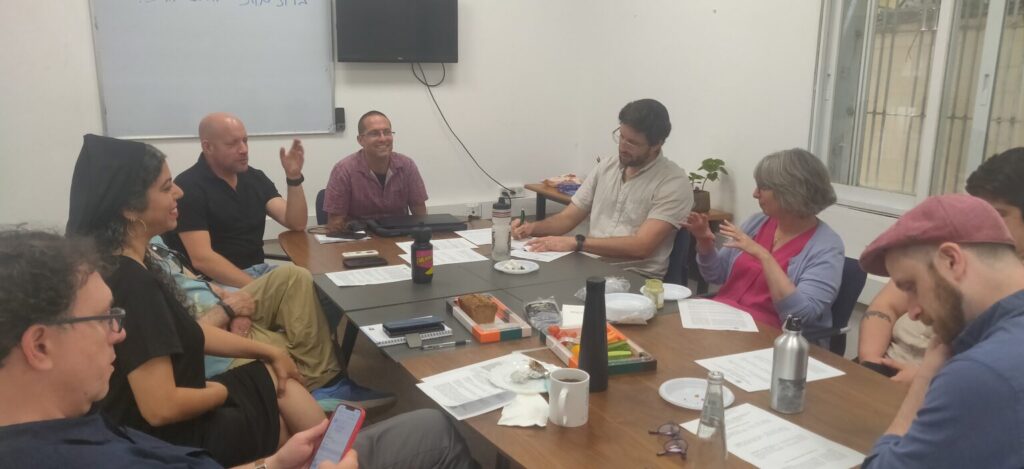Rabbi Mira Wasserman, Ph.D., has been appointed RRC’s interim vice president for academic affairs.
Wasserman has taught Talmud and rabbinic literature for a decade at RRC and loves everything about the seminary, especially her students and colleagues. In the role of interim vice president, Wasserman will lead the college — effectively, she’s the academic dean — and serve as a key member of Reconstructing Judaism’s leadership team. (RRC is part of Reconstructing Judaism.) The vice-presidential role entails oversight of the curriculum and student life, as well as supports faculty members in their teaching and research. Assisting students and enabling them to become the best rabbis they can be remains a driving focus, said Wasserman.

In an email to faculty, staff and students, Rabbi Ambers Powers, Reconstructing Judaism’s executive vice president, wrote: “As interim VPAA, Mira will help provide continuity and stability, and we will all benefit from her commitment to RRC’s academic excellence and caring community.”

The breadth of Wasserman’s work has included serving in a pulpit, Talmudic scholarship, the uplifting of Jewish ethics and the pursuit of social justice. In the classroom, she explores the history and cultures of diverse ancient Jewish communities while fusing immersion in classical text with new critical methods and theory. She challenges students to wrestle with the most difficult parts of the Talmud and what it means for Jewish leadership today. In 2016 and 2023, Wasserman was selected by her students to receive the Reconstructionist Rabbinical College’s Yaakov Gladstone Award for Fine Teaching.
“I love RRC. I love our students. I love my colleagues,” said Wasserman. “I’m thrilled to take on this role — motivated by love of and service to the institution — to make it an even more wonderful, uplifting community to teach and learn.”
After leading RRC for three years, Amanda Beckenstein Mbuvi, Ph.D., recently stepped down as vice president for academic affairs. Mbuvi has transitioned into a new role as teaching fellow in race, culture and Jewish ethics. The first African American to lead an American rabbinical seminary, Mbuvi led RRC through the return to in-person learning after the disruption of the COVID-19 pandemic.
Under Mbuvi’s tenure, RRC implemented a new curriculum, deepened and expanded support for students with disabilities or learning differences, and successfully completed an intense reaccreditation process with the Middle States Commission on Higher Education.
“It is really important that Mira is both a scholar and an ethicist,” said Mbuvi. “She’s got this incredible breadth of background that gives her valuable perspective. She understands RRC in the context of higher education and in the landscape of the Jewish world.”

Wasserman stressed that she’s “so grateful to Amanda Mbuvi for her example and her support. She always had the back of the faculty and the students. She has really worked hard to prepare me for this role. I’m also leaning on my other predecessors, Elsie Stern and Tamar Kamionkowski, who have both been super generous in offering their support and helpful advice.”
Kamionkowski led the college from 2004 to 2013, and Stern from 2014 to 2021.
For the next year, Wasserman will cut back her teaching duties to one class per semester. She will also remain director of the Center for Jewish Ethics. For the next year, the center is running the 1299 Reckoning Project. This collaboration between the Ethics Center, the college and Reconstructing Judaism’s Thriving Communities department is examining the RRC’s North Philadelphia years, as well as the college’s relocation to the suburbs, through a racial justice reparations lens.
“I’m thrilled to take on this role — motivated by love of and service to the institution — to make it an even more wonderful, uplifting community to teach and learn.”
Rabbi Mira Wasserman
Wasserman was a congregational rabbi before becoming an academic; she is rabbi emerita of Congregation Beth Shalom in Bloomington, Ind. Wasserman said that her time leading a congregation prepared her for this new role: She supervised staff, managed the calendar and served as the institution’s public voice.
In a recent interview, Wasserman did not skirt over the fact that the Israel-Hamas war made the 2023-24 academic year a challenging one at RRC. Students and faculty tried hard to remain in cordial dialogue and relationships in the face of profound disagreements.

“In the rabbinic imagination, disagreement and conflict are features of Jewish life. It’s not a bug. Conflict is not something to be overcome. It’s something to be embraced,” said Wasserman, who recently took part in RRC’s Faculty Study Trip to Israel. “But we need to develop better skills for living with conflict.”
Ever the rabbi and Talmud professor, she invoked the rabbinic concept of “arguments for the sake of heaven” or Machloket l’Shem Shamayim. RRC, she noted, will continue to model such conversations.
“I am interested in making sure that we have leaders who can be in respectful conversation, and grounded in Jewish values, no matter where they stand on the politics of Israel,” said Wasserman. “And I think it is the great debate of our time. Where does Israel fit into what it means to be a Jew today?”
Referring to her recent trip to Israel and the West Bank, Wasserman said she returned “so inspired by Israelis and Palestinians, who against the backdrop of war, of personal loss of personal risk, are continuing to work together in pursuit of human rights, human dignity, democracy, justice. If people in a war zone can find ways to work together, we can find ways to work and learn together. I that that is at the heart of our work for this coming year.”
Further Resources
The Center for Jewish Ethics pioneered a groundbreaking project on Jews and race.
Listen to Rabbi Mira Wasserman discuss what she loves about teaching at RRC.
Watch Rabbi Mira Wasserman’s video teaching.
Listen to a podcast episode from pandemic times in which Rabbi Mira Wasserman discusses Jewish ethics.





